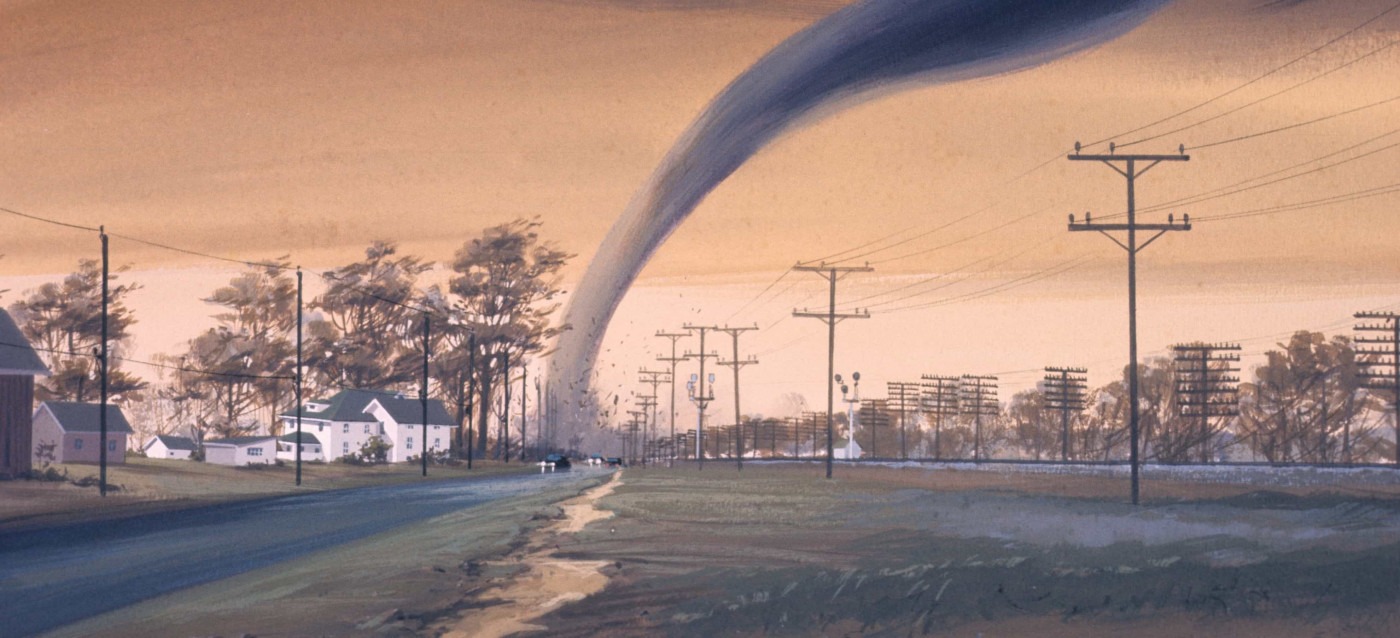Do natural disaster films work?
Popular media is an effective window onto the world, and we see in film reflections of our contemporary hopes and fears. So, as climate change features increasingly heavily in our news and politics, it’s no surprise that it also creeps into our cinema. Of course, climate is nothing new on our cinema screens (even 1973’s The Wicker Man had an eco undercurrent), and the 2006 Oscar success of An Inconvenient Truth fuelled the popularisation of climate discourse in media.
But arguably, the most popular depictions of climate change in cinema come courtesy of the disaster films – the sub-genre has existed since its 1970s heyday (to the extent that it was parodied in Airplane!), and has been increasingly linked with the career of Roland Emmerich – he’s frozen Earth in The Day After Tomorrow, overseen natural disasters in a world-ending prophecy in 2012, and last year threatened to bring the Moon crashing into the Earth in Moonfall. He’s far from alone in imagining these catastrophes – there’s Twister, San Andreas, Geostorm, Dante’s Peak, Volcano, and many more. Deepwater Horizon even dramatized a real ecological crisis.
If popular media reflects our hopes and fears, then how should we understand the swell of climate disaster films? Most of them are unrealistic, using the vaguest touches of science to explain the disasters – Moonfall would have you believe that the Moon is a Dyson sphere powered by a star and controlled by AI. But the films (mostly) evoke genuine crises, and how do we respond to them as audiences? Do they depict the horror of situations such as tsunamis and earthquakes, or do they contribute to a disconnect meaning we can view the events as apart from our own world? Do they encourage a sense of pessimism about these disasters, or does the fact that there is often an in-film solution to the problems provide hope?
If popular media reflects our hopes and fears, then how should we understand the swell of climate disaster films?
Finlay van der Vossen writes that the disaster movie is actually one of the best places to depict climate change and its potential consequences because it enables us to collapse time and space to present these disasters as immediate. We’re never going to see extreme simultaneous global climate disasters à la Geostorm, but that doesn’t mean we can’t appreciate the impact of a world coded as ours being destroyed by these events. Watching landmarks be swallowed up by tidal waves or destroyed by earthquakes speaks to us, linking these events with our reality. For van der Vossen, these films are often doomist in nature, presenting scenarios whereby climate change all but wipes us out.
What about films that approach environmentalism and eco-disaster in a different way? Recently, I watched a film called How to Blow Up a Pipeline (a spoiler warning is in effect, but the title says it all here). Now, I had a lot of problems with it as a film – contrary to most of the reviews, I found it lacking in tension (there’s never any sense that the group will fail in their plot), with a bunch of underdeveloped characters, a number of whom had no real reason to actually go along with the scheme. That is what happens when your film is a polemic, rather than a movie, and I think it’s quite a dangerous one.
It enables us to collapse time and space to present these disasters as immediate
Why is that exactly? Well, we’re encouraged not only to sympathise with the characters because of their climate-related backstories, but the film desperately wants us to be on the side of their terrorism. At one point, the main character states it’s better she decides when and how people get to die because of the climate crisis, and this is framed as entirely just and correct – we’re never urged to think critically about whether their acts are extreme. The message of the film is not only that eco-terrorism is necessary, but here are the blueprints on how to be successful.
In my view, how these films will resonate with the viewer depends on the individual viewer. For every audience member who watches Geostorm and sees in it the need for climate action, there will be another enjoying a mindless Gerard Butler action flick. However, it’s undoubtedly true that these films provide space for questions about climate change and its consequences to enter popular discourse, and in a way that is likely more accessible for the general public than a guy in a lab coat and a scary PowerPoint presentation – that is a victory in itself, and the value cannot be understated.

Comments